Chun-Hsun Chou
FML-based Dynamic Assessment Agent for Human-Machine Cooperative System on Game of Go
Jul 16, 2017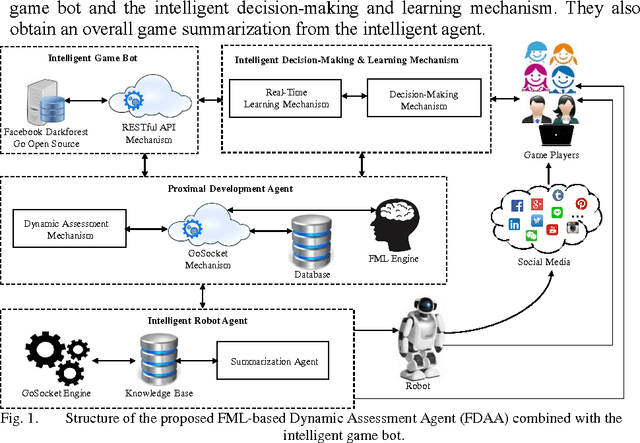
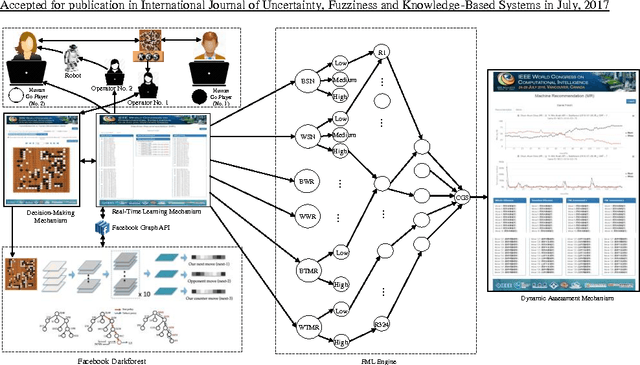
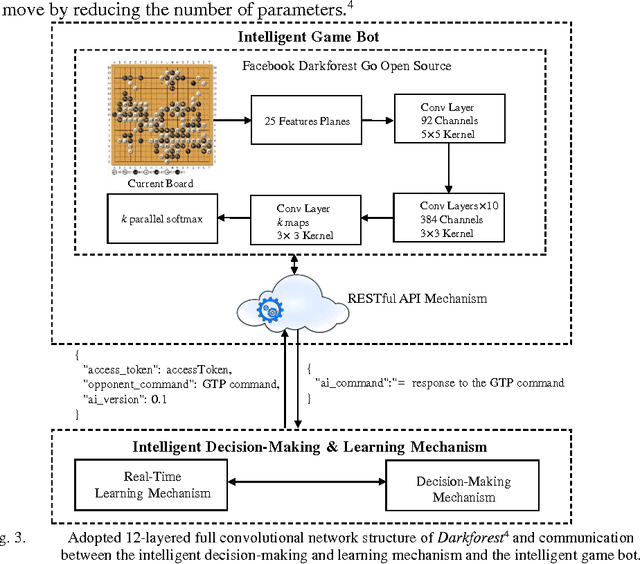

Abstract:In this paper, we demonstrate the application of Fuzzy Markup Language (FML) to construct an FML-based Dynamic Assessment Agent (FDAA), and we present an FML-based Human-Machine Cooperative System (FHMCS) for the game of Go. The proposed FDAA comprises an intelligent decision-making and learning mechanism, an intelligent game bot, a proximal development agent, and an intelligent agent. The intelligent game bot is based on the open-source code of Facebook Darkforest, and it features a representational state transfer application programming interface mechanism. The proximal development agent contains a dynamic assessment mechanism, a GoSocket mechanism, and an FML engine with a fuzzy knowledge base and rule base. The intelligent agent contains a GoSocket engine and a summarization agent that is based on the estimated win rate, real-time simulation number, and matching degree of predicted moves. Additionally, the FML for player performance evaluation and linguistic descriptions for game results commentary are presented. We experimentally verify and validate the performance of the FDAA and variants of the FHMCS by testing five games in 2016 and 60 games of Google Master Go, a new version of the AlphaGo program, in January 2017. The experimental results demonstrate that the proposed FDAA can work effectively for Go applications.
Human vs. Computer Go: Review and Prospect
Jun 07, 2016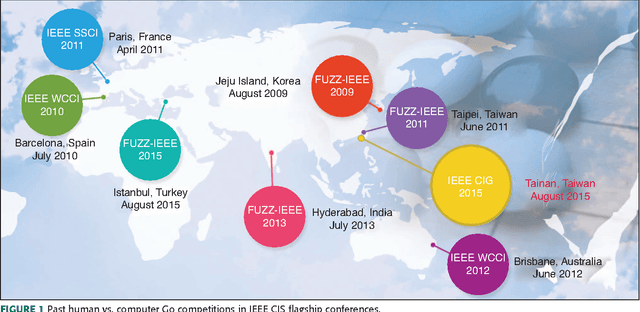
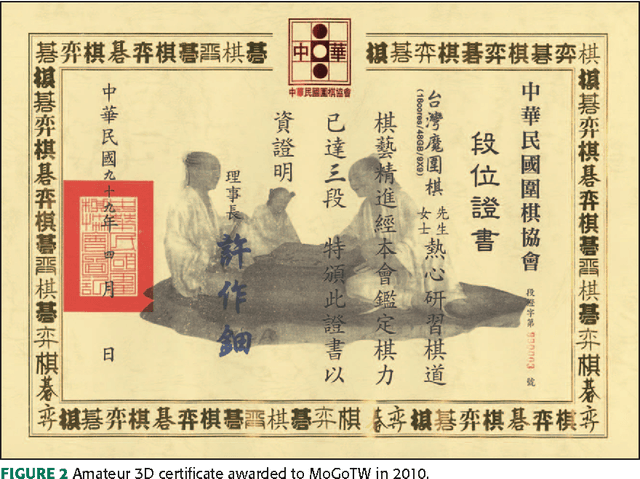
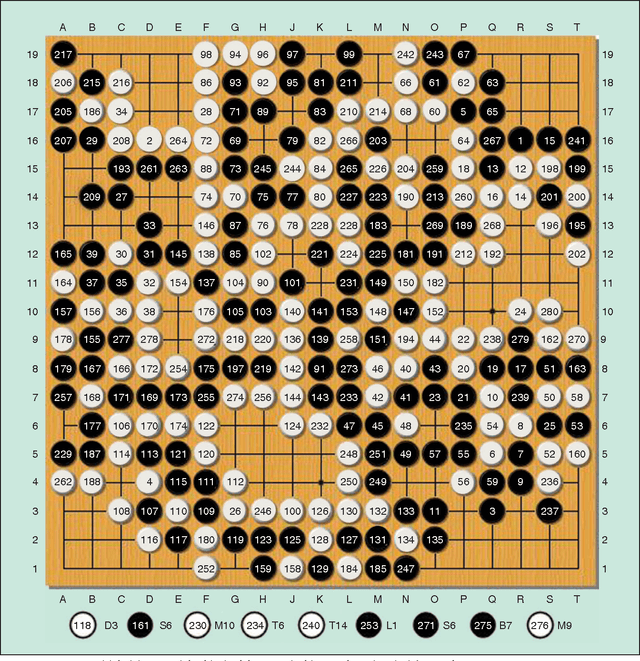
Abstract:The Google DeepMind challenge match in March 2016 was a historic achievement for computer Go development. This article discusses the development of computational intelligence (CI) and its relative strength in comparison with human intelligence for the game of Go. We first summarize the milestones achieved for computer Go from 1998 to 2016. Then, the computer Go programs that have participated in previous IEEE CIS competitions as well as methods and techniques used in AlphaGo are briefly introduced. Commentaries from three high-level professional Go players on the five AlphaGo versus Lee Sedol games are also included. We conclude that AlphaGo beating Lee Sedol is a huge achievement in artificial intelligence (AI) based largely on CI methods. In the future, powerful computer Go programs such as AlphaGo are expected to be instrumental in promoting Go education and AI real-world applications.
 Add to Chrome
Add to Chrome Add to Firefox
Add to Firefox Add to Edge
Add to Edge